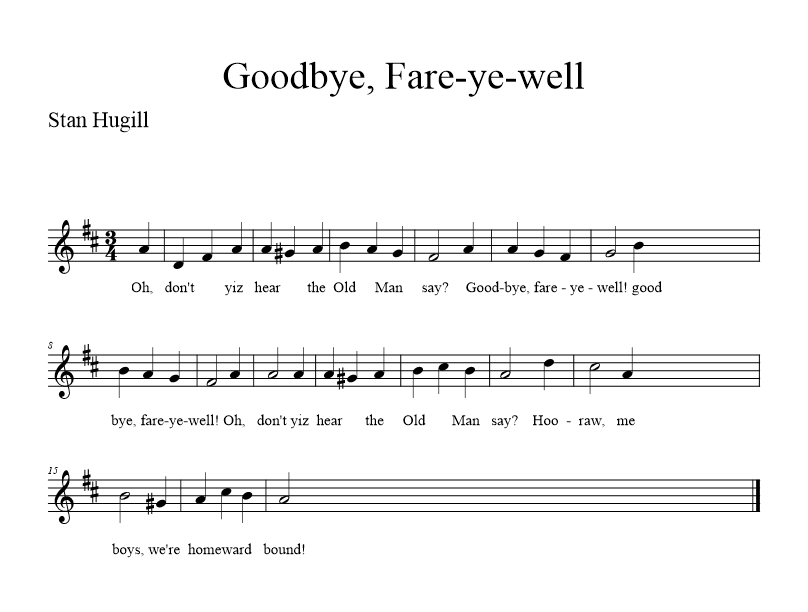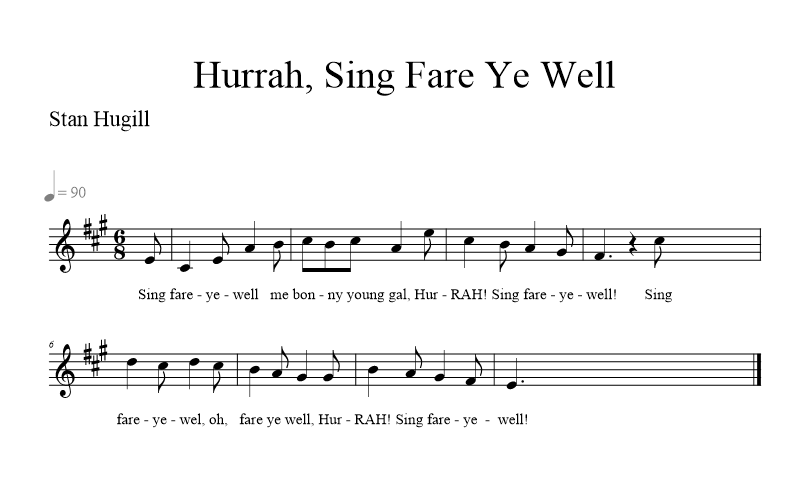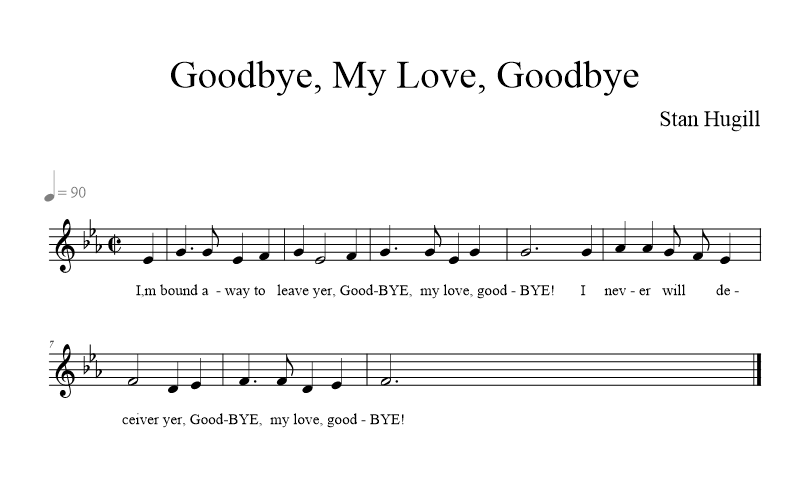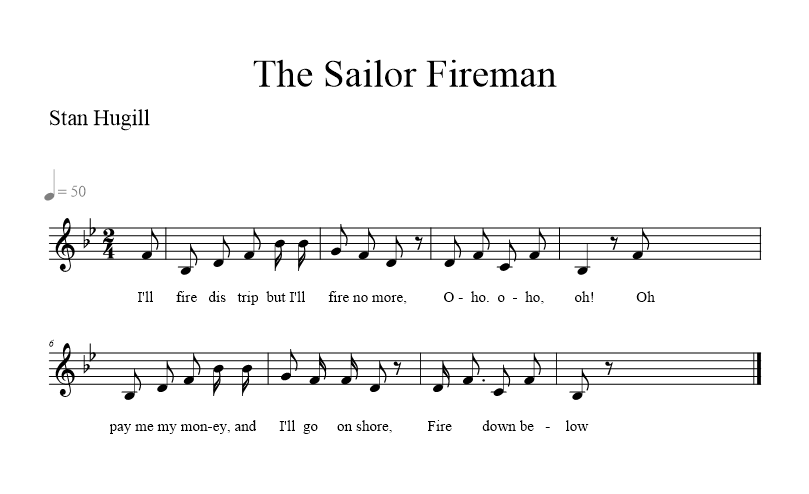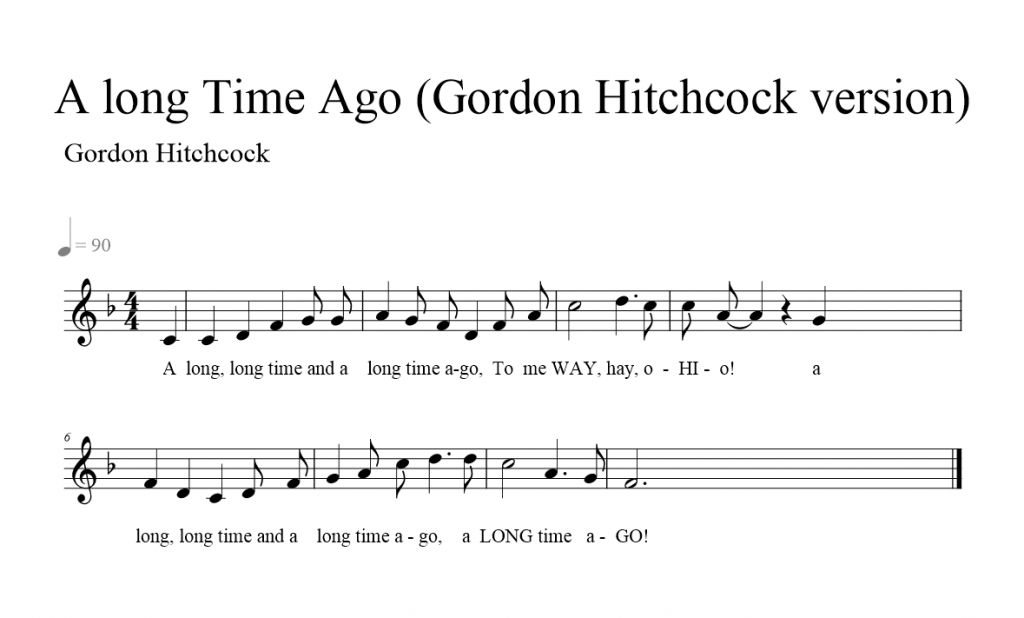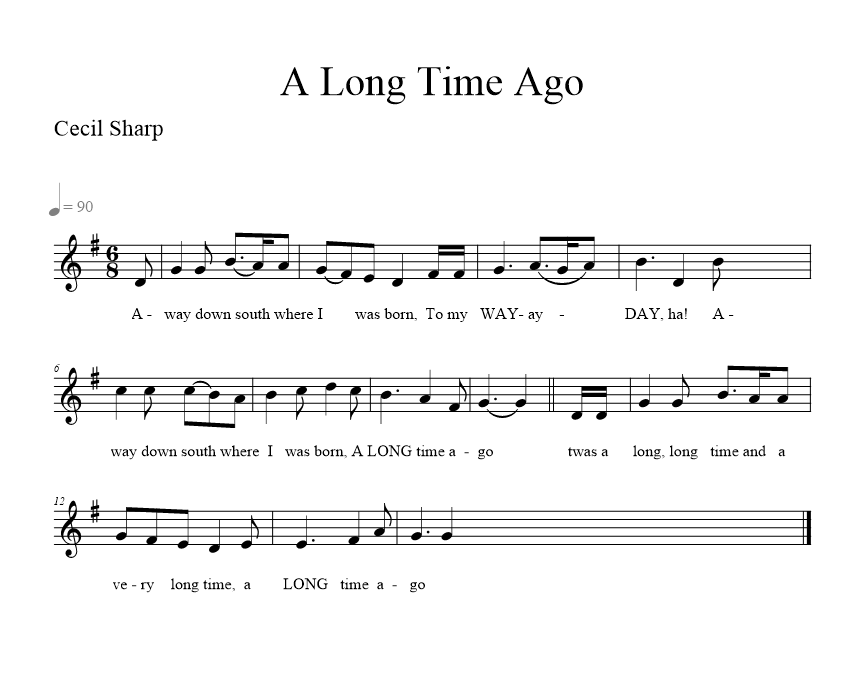Interesting Facts about the Goodbye Fare-ye-well (Sigurd Sternvall version)
Stan Hugill on page 124 mentioned the Goodbye Fare-ye-well (Sigurd Sternvall version); he says this is a Swedish version in “Sang under Segel”, and gives us one verse without chorus lines. In big effort and great luck I found this original mentioned book: Singuard Sternvall’s “Sang under Segel” (1935), so now I can sing this mentioned shanty in full 5 verses length. Also, I will use the original music taken from this beautiful book. The original comment to this song in “Sang under Segel” says:
“A very old gang song: sing in my time mostly as a halyard shanty”.
The song will be reconstructed by myself as the halyard shanty.
The source of this sea shanty
The music: “Sang Under Segel” by Sigurd Sternvall (1935) (1st ed p 357, 358).
The lyrics: “Sang Under Segel” by Sigurd Sternvall (1935 (1st ed p 357, 358).
Mentioned in: “Shanties from the Seven Seas” by Stan Hugill (1st ed p 124).
The Record of the Goodbye Fare-ye-well (Sigurd Sternvall version)
You also can find this record on my YouTube channel here or directly listen below. Additionally, if you want to share your opinion about the record or share your opinion you can do it in my Facebook forum here, or leave a comment at the bottom of this blog article.
The musical notation
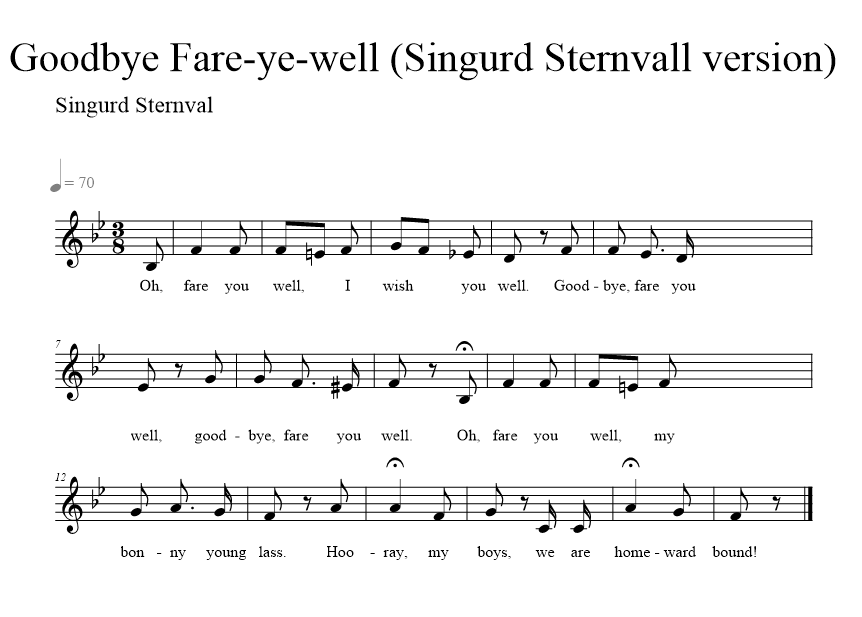
The full lyrics
Goodbye Fare-ye-well (Sigurd Sternvall version)
Oh, fare you well, I wish you well.
– Good-BYE; fare you well, good-BYE; fare you well.
Oh, fare you well, my bonny young lass.
– HooRAY; my boys; we are HOMEward bound!
* 2 *
Oh, don’t you hear the Old Man say:
“We are homeward bound; this very day”.
* 3 *
We are homeward bound; and I hear the sound.
So have on the windlass and make it come round.
* 4 *
Our anchors aweigh; and our sails they are set
and the girls we are leaving; we leave with regret.
* 5 *
She is a flash clipper packet and bound for to go,
with all boys on the towrope she cannot say no.



